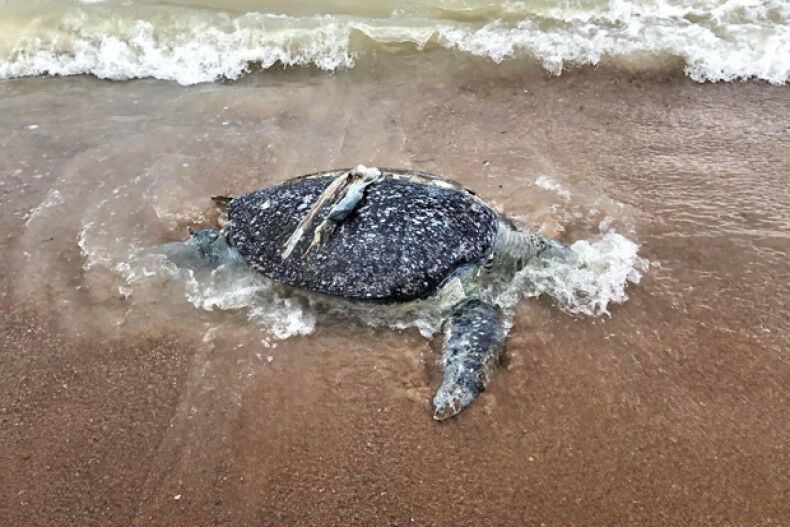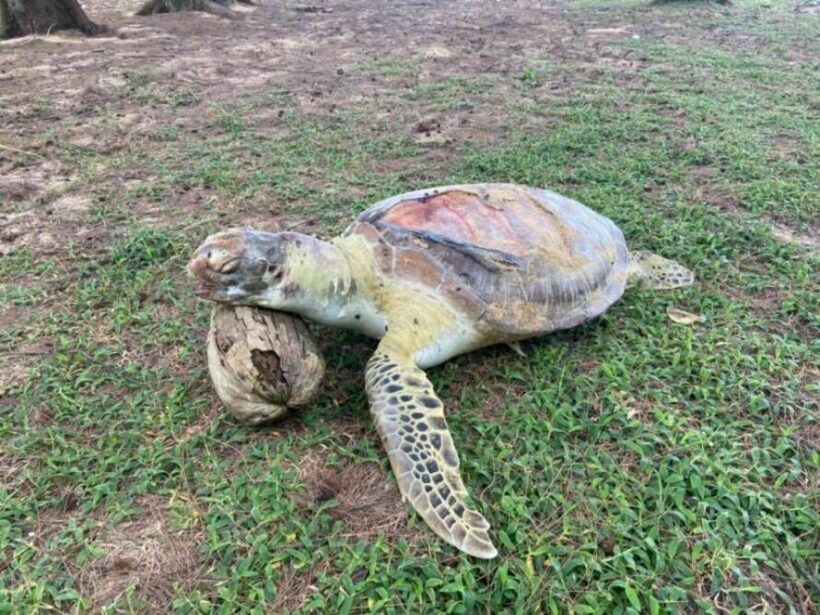Sea turtle choked to death on plastic waste

The Sea Turtle Conservation Centre revealed the dead turtle that washed ashore on a Chon Buri beach yesterday choked to death on plastic waste.
Veterinarians at the centre said more than two kilogrammes of waste was found inside the marine reptile when they examined it.
About 100 grammes of fishing net, nylon filament, plastic and small nails and other rubbish, were discovered inside its stomach and gut, reported Bangkok Post.
The 20 year old female was found on Kinnaree beach on Sunday morning and sent to the navy’s turtle conservation centre for examination.
The centre added they did not know how long the turtle had been dead but the plastic waste it consumed had killed it.
The turtle had been microchipped and vets revealed there are tracking its past movements from its ID number.
The turtle shell was 90 centimetres wide and 96.5 centimetres long.
It is not the first turtle to have choked or died in Thailand this year.
A dead sea turtle washed up on Mai Khao Beach in Phuket on July 11 with plastic lodged in its mouth and throat.

Ironically, later that afternoon, a baby Hawksbill turtle washed up on the same beach. The baby turtle was still alive and vets took it to the national park’s sea turtle nursery for a health check-up.
Hawksbill turtles are listed as a Critically Endangered Species by the International Union for Conservation of Nature (IUCN). Plastic waste, ghost fishing (accidental fishing), coastal development, and climate change continue to threaten the species’ existence. Each year thousands of turtles are injured or killed by fishing equipment.
Turtles continue to be hunted for their eggs, with some cultures believing that the eggs have aphrodisiac qualities.
Turtles are also harvested for their meat or used as shark bait by some fishermen. The World Health Organisation (WHO) cautions against the consumption of hawksbill turtle meat because the species feeds predominantly on toxin-containing sponges, which, if consumed by humans can cause neurotoxicity, kidney disease, liver cancer, and developmental defects in unborn children, according to the WHO.
Latest Thailand News
Follow The Thaiger on Google News:


























